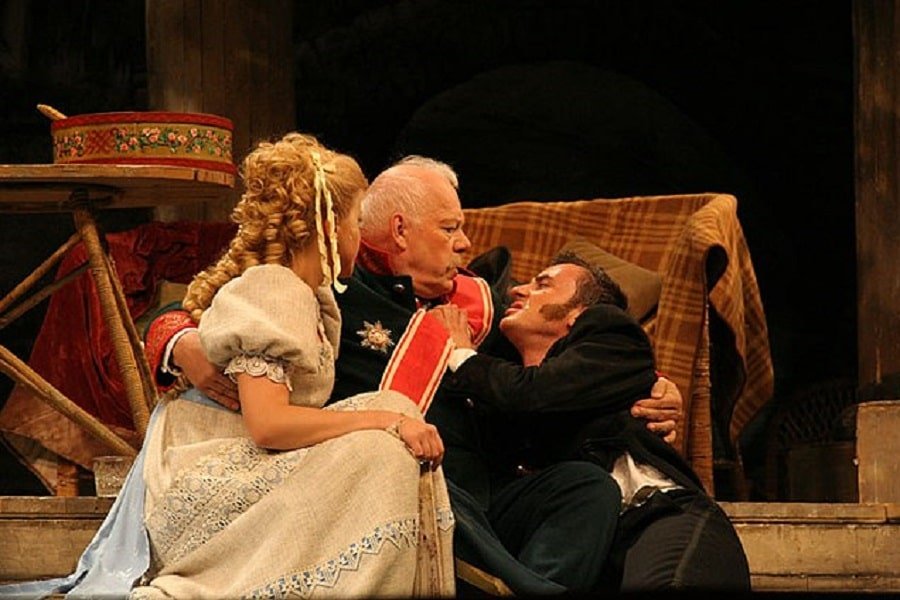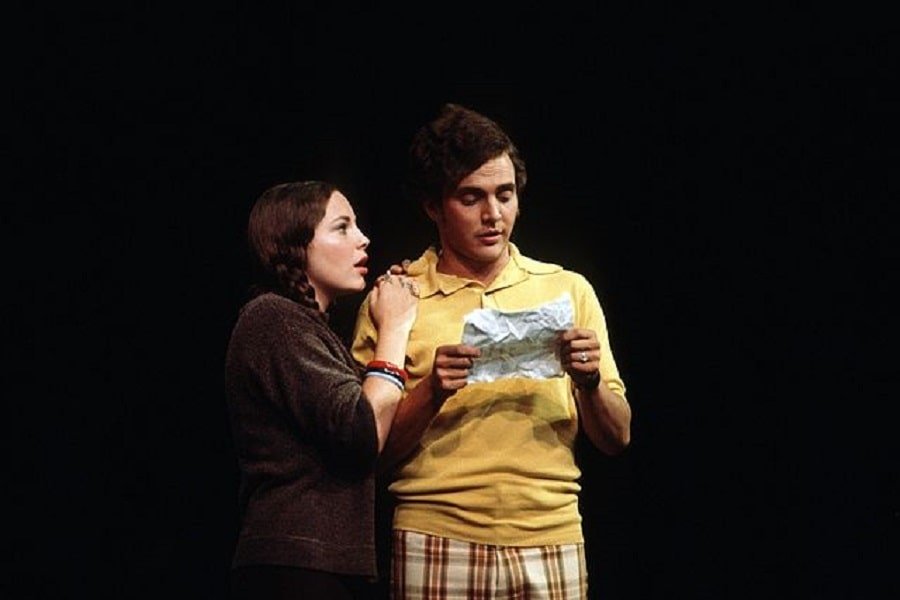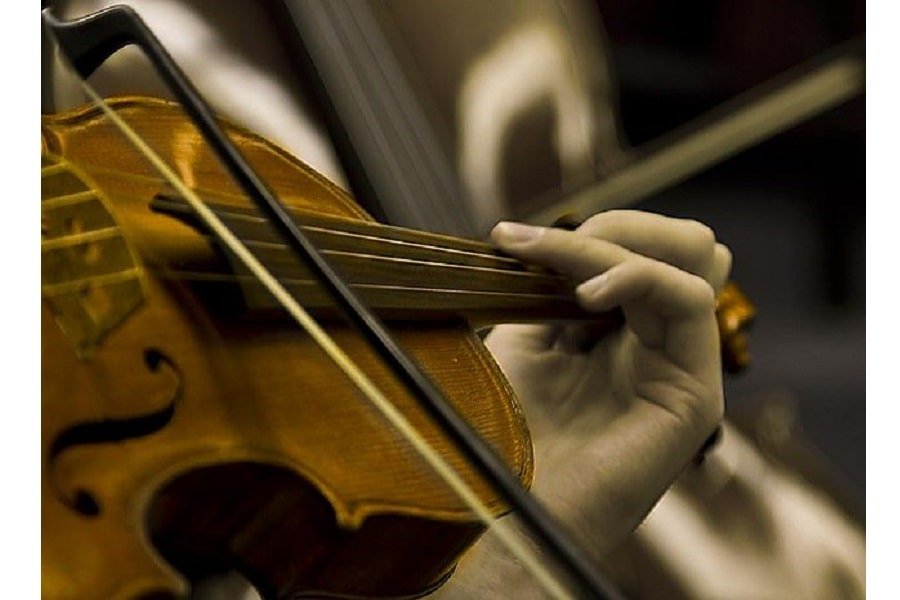The origin of break a leg has to do with jinxing bad luck. The idea is that bad luck will not occur simply because you said it would occur. In the same vein, if you wish someone good luck, you will only have bad luck. The phrase has made its rounds through all performance arts and even in other areas. The exact reason why it’s to ‘break a leg’ and not ‘a lot of bad luck’ probably originates in the German army.
The phrase has been adopted by different cultures and has its own interpretations in many languages. How could a seemingly alarming phrase become so widely known?
Table of Contents
What is the Origin of Break a Leg?

The exact origin of the idiom ‘break a leg’ remains a topic of discussion. Many opt for a blend of superstitions, traditions, and sayings from Shakespeare’s time. Still, the most acclaimed theory behind the phrase has to do with theater people that want to jinx the bad luck by saying it out loud. The actual origin of such paradoxical well-wishing probably originates in the corruption of a Hebrew blessing.
Still, the actual popularity and spread of the English phrase has little to do with the blessing, but more so with the common superstitions of theatre people. Ultimately, ‘break a leg’ is a somewhat weird expression that represents the relationship between an actor and his fellow performers.
What Does the Idiom Break a Leg Mean?
The phrase ‘break a leg’ is a common idiom used to wish the performer good luck, particularly before a theater performance. It indicates that you hope for the best performance out of the actor and you encourage them to give their all. While its literal meaning is negative and potentially alarming, the phrase carries positive intentions within the theatre context.
The superstitious meaning of the phrase has an interesting history. In the context of the performing arts, ‘break a leg’ is often seen as a way of metaphorically ‘breaking’ the barrier of stage fright or nervousness. However, the phrase is also adopted and reinterpreted by other cultures, giving the phrase a different meaning in every context.

Other Reverse Jinxes in Performance Art
Other variations of the phrase exist predominantly within different performance disciplines. Musicians might use ‘break a string’ as a way to wish each other luck, emphasizing the importance of an instrument’s string remaining intact during a performance.
Ballet dancers, on the other hand, might say ‘break a limb’ or ‘break a toe’, acknowledging the physical demands of their art form.
However, you can see very similar traditions in other domains too. For example, you say ‘break a keel’ to sailors that are about to embark on a voyage.
These variations highlight the idiom’s flexibility and its ability to adapt to the specific needs and challenges faced by people in different disciplines. All and all, the idea of saying a bad wish instead of a good wish in many different cultures adds an intriguing layer to the profoundness of the phrase ‘break a leg’.

Alternative Theories
While the reverse jinx is the prevailing theory when it comes to the origin of ‘break a leg’, there are some other explanations that might have influenced the use and spread of the English idiom.
Ancient Greece
One theory connects the phrase to ancient Greek theatrical audiences. It is believed that in ancient Greece, spectators would bang their chairs on the ground to show appreciation for a flawless performance. Naturally, if the audience was too enthusiastic, they would ‘break a leg’ of the chair they were supposed to sit on.
This connection to the ancient Greek theater suggests that the phrase carries a historical weight and a connection to the origins of theater itself. However, it was only the action of the Greeks that might’ve contributed to the origin of the phrase. They weren’t actually out there and telling each other to ‘break a leg’. It was just a consequence of a good performance.
The Leg Line
Another theory has to do with breaking the ‘leg line’ of the stage. This notorious line is basically the line where ensemble actors were queued to perform. However, it was not always the case that these actors could actually perform in the play on stage. If they wouldn’t play, they also wouldn’t get paid.
Saying to ‘break a leg’ would, in this instance, indicate that you wish someone to break the leg line. With that, you wish for someone to get paid for their services.
Horse Racing

Another theory for the spreading of the phrase is connected to horse racing. In the world of horse racing, when the horses approached the starting line, the jockeys would break the race line with their horses’ front legs.
Crossing the line, or ‘breaking it’, was believed to drive away evil spirits and ensure a successful race. Over time, this ritual transformed into a way of wishing the horses and riders luck. In that sense, using the phrase ‘break a leg’ is a symbolic representation of breaking the starting line.
When Did the Term ‘Break a Leg’ Start?
The first uses of the exact phrase are believed to originate in the American theater scene in the early days of the 20th century. The first reference to the phrase came from an American writer called Edna Ferber. In her autobiography called ‘A Peculiar Treasure’, she writes: ‘all the understudies sitting in the back row politely wishing the various principals would ‘break a leg’.
Maybe because of that, the term gained popularity and became commonly used among actors, directors, and theater professionals as a way to wish performers good luck before going on stage. Its usage spread beyond the theater community and became a well-known idiom associated with the performing arts in general.
Still, the reference in ‘A Peculiar Treasure’ was just the first recorded reference. While the precise starting point remains unclear, it is likely that the phrase evolved gradually over time, influenced by various factors such as theatrical traditions, superstitions, and the creativity of those involved in the theater world.
It is worth noting that the phrase ‘break a leg’ might have had localized origins within specific theater circles or regions before gaining wider recognition and usage. However, due to the lack of concrete documentation and historical records, it is close to impossible to determine an exact date or specific event that marks the beginning of the phrase’s popularity.

Emergence in the American Theater
The phrase’s emergence in the American theater scene suggests that it evolved within the context of English-speaking performers. The theater is a realm that embraces superstitions and traditions, and the idiom ‘break a leg’ fits well within this environment. Its unconventional nature and paradoxical meaning might’ve simply appealed to the performing arts community.
Over time, the phrase has gained popularity and become a unique way to wish actors good luck. As with many idioms and expressions, the true origin of ‘break a leg’ may forever remain a mystery. Its evolution and adoption within the American theater scene have solidified it as an iconic phrase associated with the performing arts.
Where Did the Term ‘Break a Leg’ Come From?
One suggestion is that it originated with German-speaking Jewish immigrants. The theory suggests that the German phrase ‘Hals-und Beinbruch’ is a possible origin for ‘break a leg’. In German, this expression translates literally to ‘neck and leg break’, which was used by Jewish-German pilots during WWII.
That’s right, we’re talking about the Jewish soldiers in the German army during WWII. The pilots used ‘Hals-und Beinbruch’ as a phrase to wish someone good luck in various situations. The similarity in imagery and the association with good luck may have influenced the adoption of the phrase in the English-speaking theater community.
Hebrew Roots
The actual phrase which the German phrase derived from was a Yiddish phrase or Hebrew blessing, namely ‘hatzlakha u-brakha’. Literally translated, this means ‘success and blessing’. Hebrew blessings often convey well-wishes and positive sentiments, but the eventual German interpretation wasn’t necessarily positive in and of itself.
By the looks of it, the conversion from ‘hatzlakha u-brakha’ to ‘Hals-und Beinbruch’ might’ve been rather phonetic. That is to say, the phrase was simply exactly taken over but only German words were used in this case. That might explain why the meanings of the two are so different.

Possible Connection
However, it should be stressed that these linguistic connections have only been proposed by various researchers. There is still no definitive evidence linking the phrase ‘break a leg’ to either German or Hebrew origins.
Cross-Cultural Adaptation and Pop Culture
The theatrical idiom ‘break a leg’ has not only permeated the English-speaking theater community; it has also made its way into various cultures and languages around the world.
While ‘break a leg’ would eventually become a staple in the English-speaking theater scene, it has been translated and adapted into different languages while retaining its essence. In French, for example, the equivalent expression for performers is ‘merde’ which means ‘shit’.
Similarly, in Italian, performers use a phrase from Italian hunters, whereas they say ‘in bocca al lupo’ (in the mouth of the wolf) to wish each other luck. These adaptations reflect the shared desire to convey support and good fortune to artists before their performances, albeit in a paradoxical way.
Besides the stage and overall performance art, ‘break a leg’ has not been confined to just the stage. It has found its way into popular films and television shows, further solidifying its presence in mainstream culture.
Characters in various productions use the idiom to wish each other luck, adding humor, drama, or authenticity to their scenes. ‘Break a leg’ has been featured in various films, often used as a well-wishing remark within the context of performing arts.